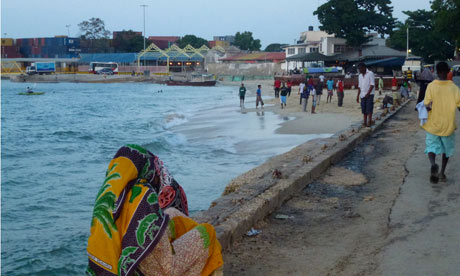Wakati Tanzania ikisema kuwa iko tayari kukaa meza moja na jirani yake Rwanda kumaliza hali ya uhasama iliyoanza kujitokeza katika siku za hivi karibuni, Katibu Mkuu wa Sekretarieti ya Jumuiya ya Afrika Mashariki, Dk Richard Sezibera amesema jitihada za kidipolomasia zinafanyika kutatua tofauti hizo za kimawazo.
Bila kutaja taasisi wala wanaohusika katika jitihada hizo za kidiplomasia, Dk Sezibera aliwaambia waandishi wa habari jijini Arusha jana kuwa jitihada hizo zinafanyika kimya kimya bila kushirikisha vyombo vya habari “Migongano na tofauti za kimtazamo miongoni mwa viongozi wakuu wa nchi wanachama wa EAC ni jambo lisilo la afya kwa Jumuiya na linastahili kushughulikiwa kidiplomasia,” alisema Dk Sezibera.
Akizungumza kwa tahadhari kubwa kukwepa kuingia kwa undani kuhusu suala hilo, Katibu Mkuu huyo alisema inafaa kila linalowezekana lifanyike kutatua mgongano wowote unaotokea kati ya viongozi wakuu.
Mjini Dar es Salaam, Waziri wa Mambo ya Nje na Ushirikiano wa Kimataifa, Benard Membe naye alisema katika mahojiano kuwa iwapo Rwanda itaomba kukutana na Tanzania kwa ajili ya kumaliza mzozo huo Serikali itakuwa tayari kutoa ushirikiano.
“Tanzania tunaona kuwa hii itakuwa njia ya busara zaidi kumaliza tofauti zetu kwa njia ya mazungumzo badala ya kuendelea kuishi kwa uhasama” alisema Membe na kwamba hali ya ujirani mwema na tofauti zetu tuzimalize kwa njia ya mazungumzo.”
Waziri Membe alisema siyo jambo la busara kuacha mzozo huo ukakaamuliwa na mataifa ya nje ili hali nchi zenyewe bado zinafursa nzuri ya kukaa mezani na kujadiliana namna ya kutafutia ufumbuzi mzozo huo.
Uhusiano wa Tanzania na Rwanda unatajwa kuwa katika wakati mgumu kutokana na kauli za majibizano baina ya viongozi wa pande zote mbili. Hivi karibuni Rais Jakaya Kikwete aliisihi Rwanda kutotoa kauli za kejeli kwani kwa kufanya hivyo kunaweza kuhatarisha uhusiano uliodumu kwa muda mrefu .
Hata hivyo, Dk Sezibera alisema tofauti na migongano kati ya viongozi haiwezi kuathiri wala kuvunja Jumuiya ya sasa ya Afrika Mashariki kama ilivyotokea kwenye Jumuiya ya awali mwaka 1977 kutokana utofauti wa muundo na misingi ya Jumuiya ya sasa.
“Jambo lililo dhahiri ni kwamba tofauti za kimtazamo kati ya viongozi wa nchi wanachama (Kikwete na Kagame), haziwezi kuhatarisha uhai wa Jumuiya ya Afrika Mashairiki kwa sababu muungano huu umejengwa katika muundo na misingi imara tofauti na ule (jumuiya) wa zamani,” alisema Dk Sezibera
-Mwananchi.
-Mwananchi.































